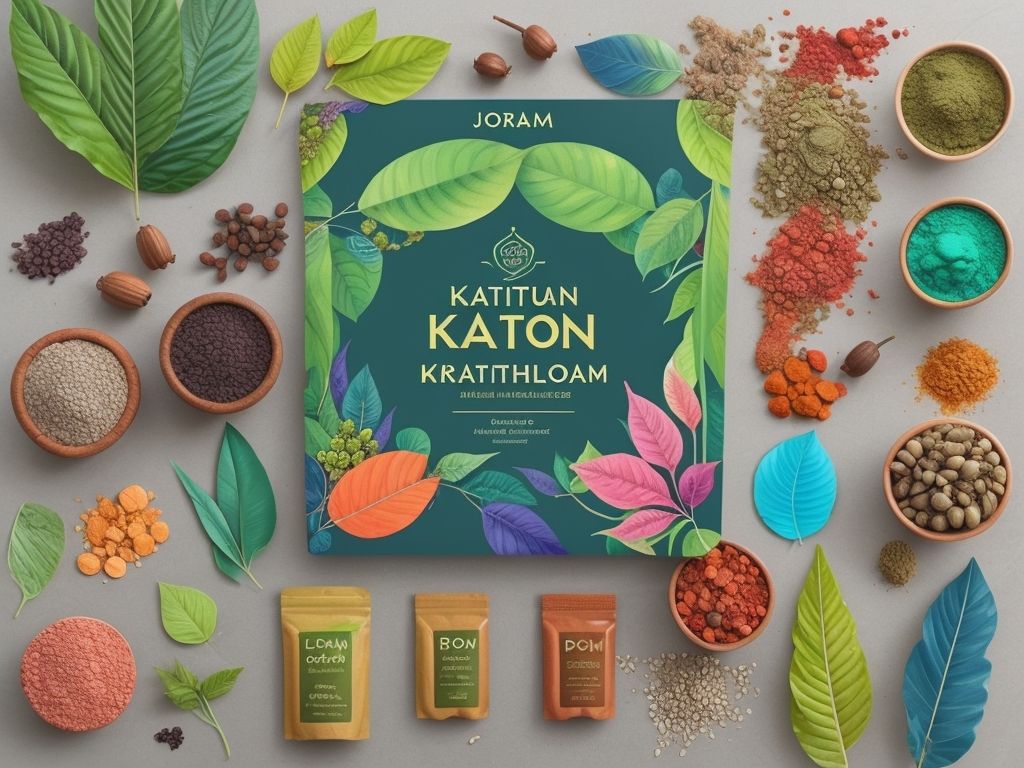Exploring the Best Kratom Alternatives for Natural Relief
People want natural remedies to benefit their well-being, and so kratom alternatives are gaining popularity. These offer similar effects without the risks that kratom can have. From herbal supplements to traditional remedies, there is a range to fit individual needs. It’s important to know the details of each before use.
Herbal supplements, such as kava and CBD oil, are two kratom alternatives. Kava, a South Pacific plant, can reduce anxiety and relax. While, CBD oil from hemp can soothe pain and reduce inflammation. They are natural solutions for those seeking kratom-like effects.
Chamomile tea and valerian root are traditional remedies that may replace kratom. Chamomile tea can soothe and may help with sleep or digestion. Valerian root is another herb with sedative effects, which can aid with insomnia.
Kratom dates back centuries in Southeast Asia, where it was used for its stimulant effects. However, its addictive properties and health risks have raised concerns, so people are looking for better alternatives.
What is Kratom?
Kratom, from the leaves of the Mitragyna speciosa tree, is native to Southeast Asia. It has become well-known recently for its medicinal properties. It interacts with opioid receptors in the brain, giving relief from pain, boosting mood, and providing more energy.
It is traditional in countries like Malaysia and Thailand to chew kratom leaves or make them into tea. But it is now more easily accessible in capsules, extracts, and powders.
The alkaloids in kratom provide a range of advantages. Mitragynine and 7-hydroxymitragynine are the two most prominent alkaloids. They work on different receptors in the body, resulting in pain relief, relaxation, focus, and better sleep.
Kratom is gaining popularity, but there are worries about its safety and potential for addiction. It is similar to opioids if not managed properly. So it is important to follow dosage instructions and consult a healthcare professional before taking it.
Why Look for Kratom Alternatives?
Kratom alternatives are gaining fame for various reasons. Some users have experienced side effects, like nausea and dizziness. Others want to try something fresh and new. Plus, there’s limited research on long-term effects. Lastly, it’s illegal in some parts of the world. So, people need legal alternatives that give similar benefits.
For instance, kava, passionflower, and blue lotus are popular substitutes. These herbs offer calming and relaxing effects. They can help with stress and sleep too. Plus, many people say they work well.
Sarah is one of those people. She used kratom for chronic pain, but had bad reactions. So, she tried kava. It relieved her pain, without the bad effects.
People are still looking for kratom alternatives. They want safe, easy-to-get options. So, they can find choices suited to their needs.
Top 5 Kratom Alternatives
Kratom, a renowned herbal supplement, has gained fame for its potential benefits. If you’re looking for alternatives to Kratom, here are the top 5:
- Kava: This drink from the Pacific Islands provides stress relief and relaxation without the sedative effects of Kratom. It has special compounds that induce a tranquil state of mind.
- CBD: Extracted from the hemp plant, CBD is used for chronic pain and anxiety relief. Its non-psychoactive properties make it an ideal Kratom substitute.
- Blue Lotus: This herb is renowned for its calming effects. It can induce euphoria and serenity and can be drunk as tea or taken in other forms.
- Akuamma Seeds: Popular in African medicine, these seeds can reduce pain and bring about relaxation. They are an effective Kratom replacement.
- Sakae Naa: This Southeast Asian herb acts as a stimulant and cognitive enhancer. It boosts energy and concentration without the sedative effects of Kratom.
When replacing Kratom, individual results may vary. It’s wise to talk to a healthcare professional before using any new supplement or herb.
Pro Tip: Experiment with different substitutes and find the one that works best for you. Start with low doses and increase gradually for best results.
How to Use Kratom Alternatives
Kratom alternatives are gaining momentum as natural remedies. Check out this practical guide to using them!
Using Kratom Alternatives:
We can organize the information into a table –
| Alternative | Dosage | Duration |
|---|---|---|
| Kava | 2-4 tablespoons of ground root powder mixed with water or juice | Effects last 3-4 hours |
| Blue Lotus | 5 grams of petals steeped in hot water for 15 minutes | Effects last up to 3 hours |
| Akuamma seeds | Start with 2 seeds and increase gradually if necessary | Effects may last up to 8 hours |
These alternatives provide different benefits without Kratom:
- Turmeric – Anti-inflammatory properties, can take as tea or add to food.
- Corydalis Yanhusuo – Used in traditional Chinese medicine, pain reliever.
Fun fact! Blue Lotus has been used for centuries by the Ancient Egyptians.
Conclusion
Alternatives to kratom are worth exploring for those seeking a different approach. Consider factors like safety, availability, and effectiveness to choose the right option.
One such alternative is CBD, which has become popular for its therapeutic benefits. It can provide pain relief and relaxation.
Kava is another choice to consider. This plant-based substance from South Pacific has been used for centuries as a ceremonial drink and is known for its calming and sedative properties. It can help manage stress and anxiety.
Rhodiola rosea is yet another option, famed for its adaptogenic properties. It is traditionally used to combat fatigue and increase alertness without caffeine.
Throughout history, people have sought alternatives to conventional methods for solutions. These remedies have been helpful in providing different paths towards well-being.
Frequently Asked Questions
FAQs about Kratom Alternatives
1. What are Kratom alternatives?
Kratom alternatives are natural substances that offer similar effects and benefits as kratom. They can be used as an alternative for those who are seeking similar effects but prefer to explore other options.
2. Are kratom alternatives legal?
The legality of kratom alternatives depends on the specific substance and your location. It’s important to check the legality of these alternatives in your country or state before using them.
3. What are some popular kratom alternatives?
Some popular kratom alternatives include Kava, Kanna, Blue Lotus, and Akuamma seeds. These substances have been traditionally used for their calming and mood-enhancing properties.
4. How do kratom alternatives work?
Kratom alternatives work by interacting with the same receptors in the brain as kratom to produce similar effects. They may affect neurotransmitters and other chemicals in the body, leading to relaxation, pain relief, or improved mood.
5. Are there any risks or side effects associated with kratom alternatives?
Like any substance, kratom alternatives may have potential risks and side effects. It’s essential to research and use them responsibly, following recommended dosages and consulting with a healthcare professional if needed.
6. Can I use kratom alternatives alongside kratom?
While it’s generally not recommended to combine different substances, including kratom alternatives and kratom, it’s best to consult with a healthcare professional before doing so. They can provide personalized advice based on your specific circumstances and health conditions.




Leave a Reply
Want to join the discussion?Feel free to contribute!